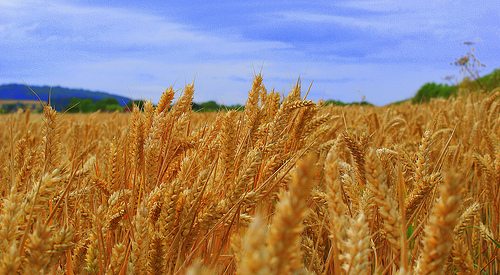

News
Climate change could reduce crop yields as soon as 2030
Climate change will hit crop yields in temperate and tropical regions earlier than first thought, a new study has found.
The study, published in the journal Nature Climate Change, warns that global warming of only 2C is likely to reduce yields of staple crops as early as the 2030s.
Researchers from the University of Leeds analysed the results of 1,700 published studies of the impact that climate change will have on the yields of rice, maize and wheat.
In 2007, a report from the Intergovernmental Panel on Climate Change (IPCC) concluded that harvests in temperate regions would be relatively unaffected by 2C of warming. It suggested some areas might even see a boost in productivity.
However, by looking at a data set twice the size of that used by the IPCC, the new study argues that this is not the case.
“As more data have become available, we’ve seen a shift in consensus, telling us that the impacts of climate change in temperate regions will happen sooner rather than later,” said Professor Andy Challinor, lead author of the study.
“Furthermore, the impact of climate change on crops will vary both from year-to-year and from place-to-place – with the variability becoming greater as the weather becomes increasingly erratic,” he added.
While the 2C of warming will mean “different countries winning and losing in different years […] the overall picture remains negative,” Challinor says.
The study suggests that on average the impact of climate change on crop yields will be increasingly damaging from the 2030s onwards.
The impact will become even greater in the second half of the century, when decreases of over 25% will become increasingly common, it warns.
The IPCC’s next report, due out later this month, is expected to investigate further the effects of global warming on food production.
According to a leaked draft – which may vary from the final release – average crop yields will drop by 2% by the end of the century, while global demand for food rises by 14% every year by 2050.
The report warns this might fuel conflict, cause poverty and lead to mass migration, as well as causing a 2% global economic loss.
Concern over food production and security has made headlines in recent weeks. Earlier this month, the World Bank reported that as much as a third of all the food the world produces is wasted or lost.
Researchers have also warned that a decreasingly varied global diet will leave us all more exposed to the kind of crop failure that climate change will cause.
In December, a study backed by the UN found that even if we eliminated food waste and evenly distributed all the food produced in 2009 around the world, then we would still need to sustainably produce 974 more calories per person every day by 2050.
Further reading:
Leaked IPCC report warns of social and economic impact of climate change
Growing Underground: London’s secret garden
Reliance on fewer crops will increase climate change food security threat
World wastes up to a third of produced food, says World Bank
20,000 crop samples sent to Arctic ‘Doomsday vault’ in case of global disaster


 Environment12 months ago
Environment12 months agoAre Polymer Banknotes: an Eco-Friendly Trend or a Groundswell?

 Features11 months ago
Features11 months agoEco-Friendly Cryptocurrencies: Sustainable Investment Choices

 Energy11 months ago
Energy11 months agoThe Growing Role of Solar Panels in Ireland’s Energy Future

 Energy12 months ago
Energy12 months agoHow Renewable Energy Can Help Combat Climate Change, According to Indra Energy




























